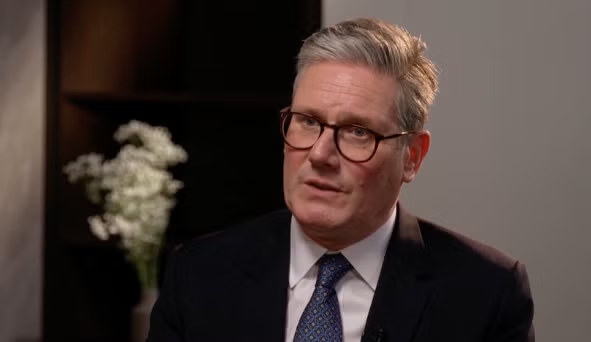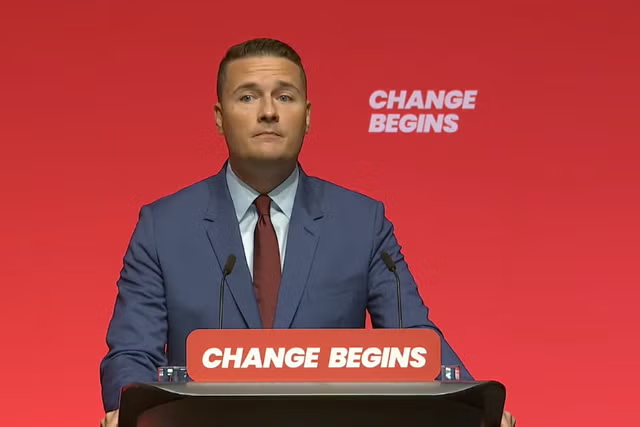Your support helps us to tell the story
Support NowAs your White House correspondent, I ask the tough questions and seek the answers that matter.
Your support enables me to be in the room, pressing for transparency and accountability. Without your contributions, we wouldn't have the resources to challenge those in power.
Your donation makes it possible for us to keep doing this important work, keeping you informed every step of the way to the November election

Andrew Feinberg
White House Correspondent
Sir Keir Starmer has said the “basic proposition” that long-term benefit claimants should look for work is right, after announcing new laws to crack down on welfare fraudsters.
He said people dealing with long-term sickness “need to be back in the workplace where they can”, promising support to help people back into employment.
As well as encouraging people back to work, the prime minister also announced new legislation to deal with welfare fraudsters more quickly, in a proposal Labour estimated would save the taxpayer £1.6 billion over the next five years.
In his speech at the Labour Party conference in Liverpool on Tuesday, the prime minister promised to “leave no stone unturned” in his mission to “rebuild our public services”.
The legislation, expected to come as part of a Fraud, Error and Debt Bill, would help the Department for Work and Pensions to recover money lost to fraud while protecting vulnerable claimants from mounting debts, the government said.

In an interview with BBC Radio 4’s Today programme on Wednesday, the prime minister said: “I think the basic proposition that you should look for work is right.
“Obviously there will be hard cases, but the way I would do it is to say yes, that’s the basic proposition, but we also want to support that so that more people can get into work.”
Some 2.8 million people are out of work due to ill-health, 500,000 more than in 2019, according to the Office for National Statistics.
Sir Keir had earlier said: “I’ve gone out and looked at schemes where businesses are supporting people back into work from long term sickness.
“Because quite often I think what lies behind this is a fear for someone who’s been on long-term sickness, that can they get back into the workplace? Are they going to be able to cope? Is it all going to go hopelessly wrong?
“Yes they need to be back in the workplace where they can, but I do think that if we can put the right support in place, which I’ve seen pilots of, they work pretty well, and we want to see more of those across the country.”
Meanwhile, health secretary Wes Streeting will on Wednesday announce that “crack teams” of leading clinicians will be sent to hospitals in areas of the country with the highest levels of economic inactivity as part of a government bid to boost employment.
Senior doctors will be drafted in to implement reforms aimed at getting patients treated faster in parts of England with the biggest numbers of people out of work due to ill health.
They will start with 20 hospital trusts in the parts of the country with the biggest rates of economic inactivity, Mr Streeting will say.
Speaking at the Labour Party annual conference, he will vow to “take the best of the NHS to the rest of the NHS.”
Disclaimer: The copyright of this article belongs to the original author. Reposting this article is solely for the purpose of information dissemination and does not constitute any investment advice. If there is any infringement, please contact us immediately. We will make corrections or deletions as necessary. Thank you.



